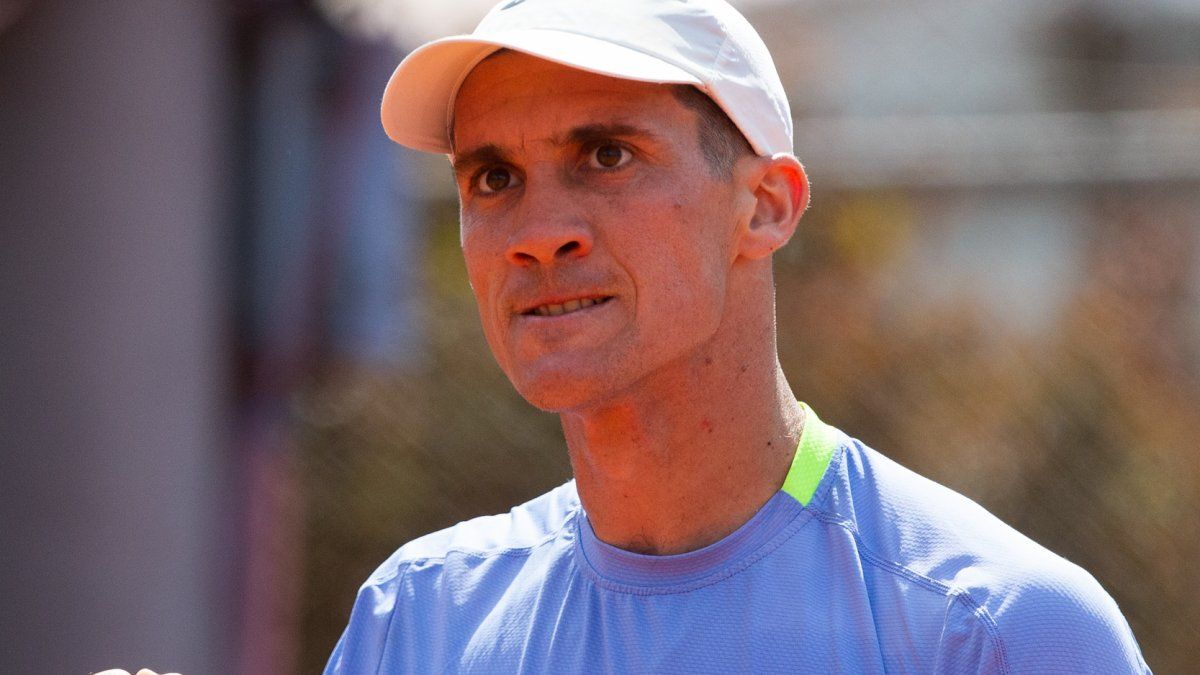This Tuesday he debuted at the Buenos Aires Challenger which is played at the Racket Club with a 6-1 and 6-4 over the platense Thiago Tirante and on Wednesday he will face Baptist Torres, another Argentine. Born in Armstrong, Santa Fe, in 1990, he has a deep tone of voice that betrays his upbringing on the inside. He speaks slowly, with calculated words and is not afraid to give his opinion.
facundo bagnis challenger buenos aires.mp4
Buenos Aires Challenger
He has been in high competition for more than a decade, and experience taught him that not everything is rosy in tennis, a sport that is often despotic with those who choose it as a livelihood. “It is very difficult to live from this”he tells Ámbito after his premiere at the Palermo club. “Of the boys who dream of being professionals, a tiny percentage achieve it”details.
“On top of that, later you become a professional and only the top 100 make a living from tennis, so it’s a bit cruel”, he argues. However, despite having been No. 55 in the world in 2016, having played the final in Santiago de Chile in 2021 or having won different challenger tournaments, he understands that they should not forget the mass of tennis players: “When one he gets to be within the 100, he does well and plays Grand Slams, he’s already on the wave and surfing with it, and he doesn’t look back saying: ‘what do we do with the guys from the Futures who don’t live from this?’ ”.
In 2020, the Serbian Novak Djokovic, then number 1 in the ATP, caused a schism with that entity and created the PTPA (Association of Professional Tennis Players, in Spanish). His intention, at least publicly, was to show his dissidence with the governing body and discuss the creation of new opportunities for the entire system. This motion did not have the support of Roger Federer or Rafael Nadal.
https://graph.facebook.com/v8.0/instagram_oembed?url=https%3A%2F%2Fwww.instagram.com%2Fp%2FCEffoe_HkAo%2F&access_token=EAAGZAH4sEtVABAAZCqwbb6SBbjZBDohKyT0Crqeg4ZAYDonDNkPdoU3WhkZCdSTZCIKJn4boKHx0oqOMYjeWvm3pB68Gz7k5EVgVN90rQRHlv2DM1N8M96ld52DqlAFGuAZCh347X4ZCP8ZACqoZC1qweTZCs2ZBADLqkcklT9P0egjzyAZDZD
Bagnis was one of the first Argentines to favor the proposal. “At a certain point we do not have the tools nor are we the ones indicated, the authorities are the ones who have to do it. It is a battle that has been lost for a long time, so what better than the help of a number one to be able to reverse that situation “he wields, with a stern gesture.
The left-hander understands this problem like few others. For a decade he was linked to a private sponsorship contract, a solution that several Argentine tennis players often resort to in order to build a career. For the man from Santa Fe, everything begins with a “bad economy and poor geographical position”, so “When you don’t have support from federations or entities or governments, it’s very difficult. You have to be ultra mega talented to get involved in a short time and be able to depend on your own pocket “.
At 32 years old, Bagnis entered another stage and is even encouraged to slip a “now I’m older” with a slight smile. The experience helps, it changes the vision and the mentality. So, what was once a complication, today he was left behind and allows himself to enjoy beyond the racket and the ball. “I enjoy the other side of tennis a bit, as it can become a chat,” says someone who does not consider himself a “fan” of this sport.
Although he has lived with it since he started playing at the age of 7, he tries not to let it take up more than enough time in his life. “I prefer to talk about other sports,” he says, and also acknowledges that over the years he warned that “The things that remained to me the most and that I had enjoyed the most were the moments with the people and not the results”.
This is one of its pillars in the motivational structure. Of course the thirst for victory coexists, but it is not the final sustenance. “Obviously one works, trains and fights to win and we live from this and we need money to live, so that interferes and continues inside because in any game you can see that the tension is there,” he explains, and counters: “This type of I like these proposals because they exhibit other facets. A tennis player is a person, with values, education, with a way of being, with issues that are linked to enjoying, or not having a good time or having a bad time. They are interesting topics that are being addressed more and more and that in tennis are quite well known because the mental makes a lot of difference”.
https://twitter.com/ChallengerBA/status/1574808674761154561
“Mental issues are nice to talk about”, brings to the table at a time when great sports figures such as Simone Billes or Naomi Osaka revealed the consequences of pressure. Or as Bagnis defines it, “the madness of competition”.
At 32, one of Armstrong’s prodigal sons, where the mythical Delfo Cabrera, tries to “defend” and give something back to this sport. That is why he manages the adapted tennis school for disabled people at the Estar Foundation, directed by his friend and former player Eduardo Schwank.
“Tennis contributed to my life, I am super grateful to him for how he shaped me as a person, the education he gave me, the values, the fact that he even brought together my entire family and my friends to see me. That is priceless.”, closes as he continues, relaxed, paying attention to the press. A different way of seeing the competition is possible.
Source: Ambito
David William is a talented author who has made a name for himself in the world of writing. He is a professional author who writes on a wide range of topics, from general interest to opinion news. David is currently working as a writer at 24 hours worlds where he brings his unique perspective and in-depth research to his articles, making them both informative and engaging.




